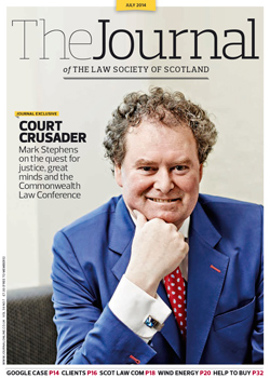Tax devolution: the legal implications

If it is trite that tax law is UK law, the conferral of tax powers on the devolved legislatures will bring a decisive end to the notion of uniformity. The Wales Bill before the Westminster Parliament would afford the Welsh Assembly broadly similar tax competences to those conferred on the Scottish Parliament by the Scotland Act 2012 (see d’Inverno, “Taxes heading north”, Journal, October 2012, 16). Less well known is that the Northern Ireland Assembly enjoys a different form of tax devolution under Part 3 of Sched 23 to the Finance Act 2012 (authority for the Air Passenger Duty (Setting of Rate) Act (Northern Ireland) 2012 in respect of rates of duty on direct long haul flights). Less well known still is that the 1921-1972 Parliament for Northern Ireland had quite significant tax powers under the Government of Ireland Act 1920, including responsibility for death duties and stamp duties.
As Scottish charity lawyers are aware, UK taxing statutes are to receive a common interpretation across the UK jurisdictions: Pemsell [1891] AC 531. While this can be advantageous to agents unfamiliar with Scots law and practice, the Law Society of Scotland noted in its 2013 publication Scotland’s Constitutional Future that “[uniformity] has resulted in the need for practical solutions to be developed in order for [UK] taxes to function in Scotland. Often, this relies upon the goodwill of practitioners who understand what the tax intends to achieve in order to ensure compliance.”
Pemsell, post-devolution
The “Pemsell principle” has been repeatedly endorsed by the courts, with Margrie Holdings 1991 SLT 38 being a rare example of the Inner House applying Scots land law to a VAT dispute, notwithstanding that a different tax result would exist in the law of England & Wales and Northern Ireland. (The decision was, unsurprisingly, promptly reversed by legislation.) What then when tax legislation applies in one jurisdiction only, for example, the Land and Buildings Transaction Tax (Scotland) Act 2013? It is likely that the courts will treat such legislation as they would any other jurisdiction-specific legislation and interpret it harmoniously with the law and practice of that jurisdiction, with the case law of other parts of the UK being potentially persuasive, though not binding.
It is submitted that this would present no great legal uncertainty to taxpayers or their agents, for key principles of UK and, indeed, international tax jurisprudence form part of Scots law. The principle of legality – that liability to pay tax must be imposed by legislation, and by clear words – is in England famously founded on the Bill of Rights 1688. In Scotland, the jurisprudential basis is constitutional principle rooted in the common law (Boog v Magistrates of Burntisland (1775) Mor 1991). The traditional literal approach to the interpretation of tax law was once stridently asserted by the Scottish courts (Ayrshire Pullman Motor Services (1929) 14 TC 754); now, the modern approach of contextual interpretation prevails (Aberdeen Asset Management [2013] CSIH 84; see Simpson, BTR 2014 (1), 32-39). Indeed, Scottish authorities have made due contribution to general tax jurisprudence, including Glenrothes Development Corporation 1994 SC 169 on VAT and stamp duty, and Al-Fayed 2004 SC 745 on the discretionary powers of tax authorities.
Record of distinctiveness
As Lord Tyre noted in 1994 (PCB 1994 (1), 51-56), Scottish distinctiveness has always existed in tax litigation and this distinctiveness has carried through into the practice of the Tax Chamber of the UK First-tier Tribunal sitting in Edinburgh. Remnants of the post-Union Court of Exchequer for Scotland today exist within the Court of Session, with the Exchequer Court’s administrative functions having been assumed by HM Treasury and the Queen’s & Lord Treasurer’s Remembrancer (see Murray, 52 Stair Society 103 (2006)). The process of civil court reform underway will not affect the Court of Session’s Exchequer jurisdiction and, accordingly, the Revenue Scotland Bill engages that jurisdiction in connection with devolved taxes. (It should also be noted that the Revenue Scotland Bill provides for Scottish tax tribunals separate to the UK tribunals referred to.)
Non-compliance has, of course, been as much a mischief in Scotland as elsewhere. On authority of Baron Hume, all forms of tax evasion are criminal at common law (Strathern v Fogal 1922 JC 73). Scottish tax authorities (local authorities, HMRC and, it is proposed, Revenue Scotland) uniquely have access to summary warrants to enforce civil debts due. The law reports disclose no lack of gallus on the part of Scottish taxpayers in seeking to escape payment, from Rev Archibald M’Lea (1819) 4 ER 196, claiming exemption from taxation on grounds of religion, through Pringle 1991 SLT 330, relying on the Treaty of Union, to – most imaginatively – Robbie the Pict (Dingwall Sheriff Court, 27 August 2004; bit.ly/1qw0Ocz), founding on royal charters dating back to the 12th century.
Whatever degree of tax power is to lie with the Scottish Parliament, Scotland will continue to make its distinct contribution to tax practice, and benefit from the experience of other jurisdictions.
In this issue
- “The Union and the law” revisited
- Cartels: raising the stakes
- The cooling-off catch
- Attack vectors into the law: smartphones
- Money laundering: the Fourth way
- Has Glasgow morality come to Edinburgh?
- Reading for pleasure
- Opinion: Graeme McCormick
- Book reviews
- Profile
- President's column
- 10-year target
- Headline act
- Forget that you ever knew me
- The cooling-off catch (1)
- Tax devolution: the legal implications
- Ninth life
- Planning: how does the wind blow?
- Going off the rails
- Employee shares? Sort them yourself
- Angostura, anyone?
- National priorities
- Scottish Solicitors' Discipline Tribunal
- People on the move
- Heart of the action
- Helping solicitors on Help to Buy
- Conditions countdown
- Where bullocks fear to roam
- Fit to grant?
- Controlling the risks
- Ask Ash
- Opening up the law
- From the Brussels office
- Law reform roundup
- Post-corroboration Review update






